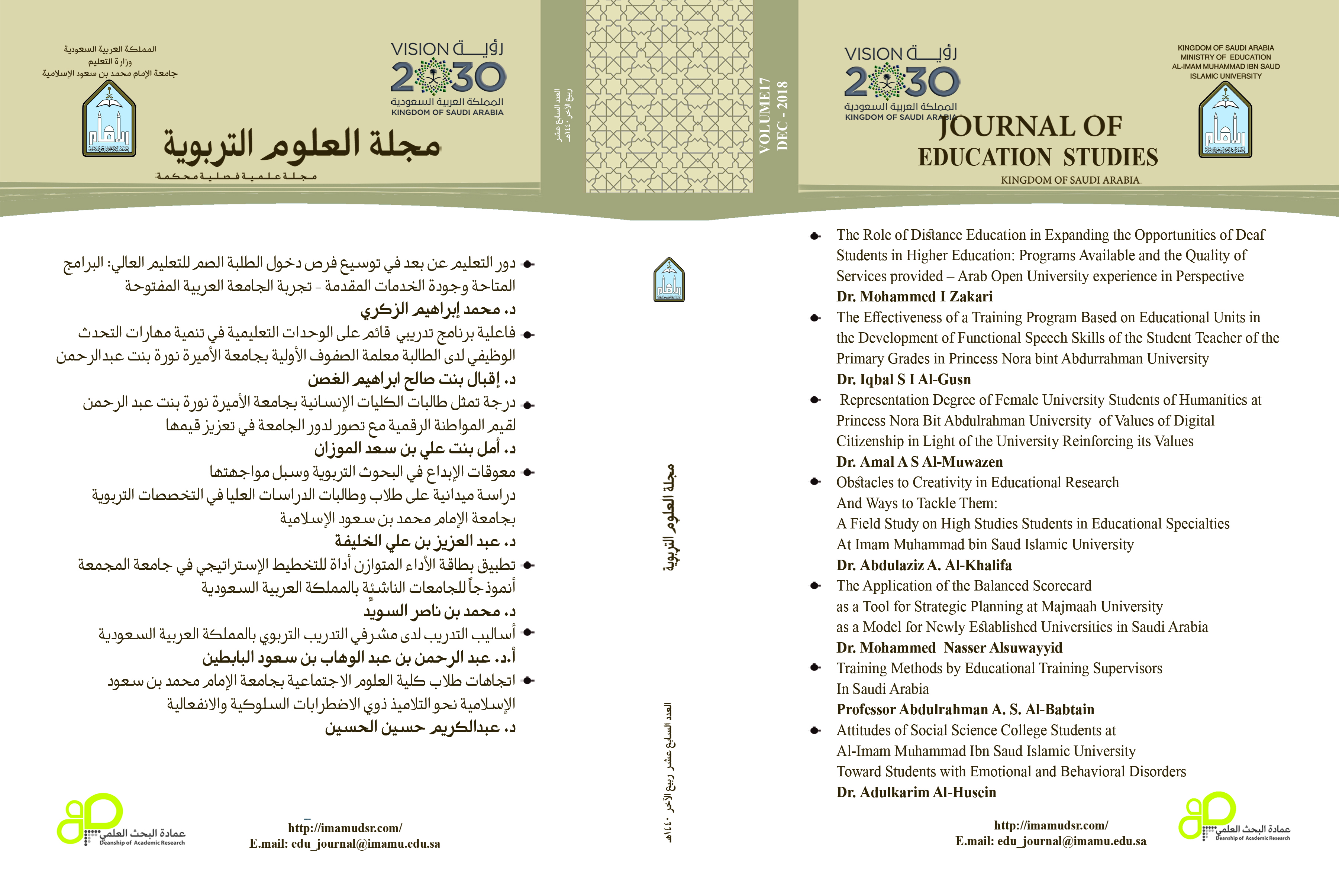The Role of Distance Education in Expanding the Opportunities of Deaf Students in Higher Education: Programs Available and the Quality of Services provided – Arab Open University experience in Perspective
Abstract
Although eighty percent of individuals suffering from hearing impairment in the world are from developing countries, according to the World Federation of the Deaf (2015), the Arab States reality points to the lack of expansion of opportunities for deaf students to enter higher education institutions. Therefore, this study aimed at describing the experience of the Arab Open University, as a distance education institution, in teaching deaf students, and determining the quality of the academic and student services offered in the university for the hearing impaired students. To achieve its objectives, the study used document analysis to describe the role of the Arab Open University in educating the deaf. And for determining the degree of satisfaction of deaf students with the quality of the academic and student services and support provided to them at the university, a survey tool was designed and implemented on (67) students (23 females 0.44 males).
The study found some details about the program that the Arab open University offer to deaf students, and the number of the students who benefited from the program which stands at (161) students. The study also found out an above average satisfaction of deaf students with the services provided to them at the university. However, the level of satisfaction of male students was larger than females, although there is no statistically significant difference between the two. The study recommendes expansion of deaf students inclusive policy to universities in the Arab world, and intensifying research on all aspects of the education of the deaf, especially how to achieve a qualitative learning and teaching experience for this group of students, and provide all the services that are commensurate with their specifications and needs.




